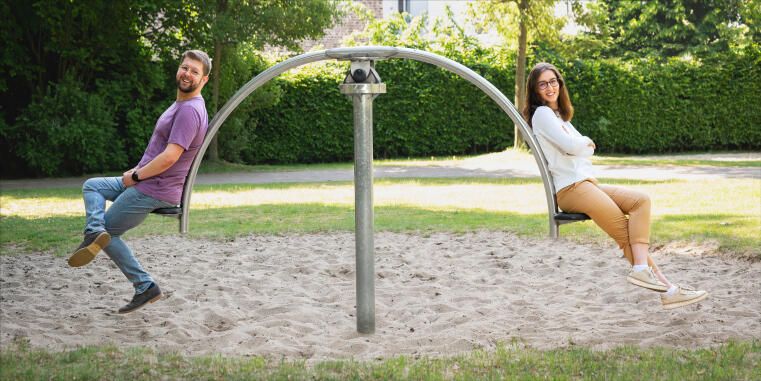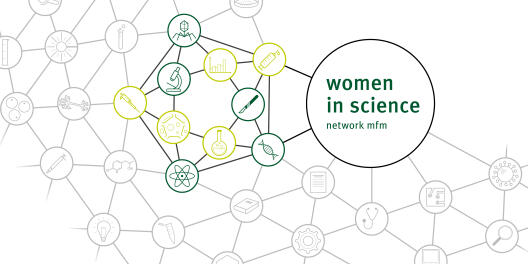
Gender equity in science: Support for women in our research network
One focus of our equal opportunity activities is to support the female scientists in our research network. In particular, we want to motivate junior female scientists to pursue an academic career, as women are still underrepresented in leadership positions in science and the relevant career decisions are usually made at an early stage. We also create opportunities for established female scientists when required and organise activities to purposefully help raise awareness of gender equity among all members of our community.
In the community of our Integrated Research Training Group, we strive for a balanced ratio of female and male doctoral researchers (as of April 2024: 47,5% female and 52,5% male doctoral researchers). Beyond the structured scientific training in our research field, an important aspect of our graduate programme is the mentoring of our PhD students by established scientists, who provide individual consultations and personal advice on their career development. Furthermore, project funding and research rotations support our early career researchers in the pursuit of their own research ideas and help pave their way to scientific independence. In the long term, these structures and measures are also intended to help increase the proportion of female project leaders in our network (as of April 2024: 28,6 % female and 71,4 % male project leaders) and in science as a whole.
Furthermore, in our network’s committees, we aim to achieve as balanced a gender ratio as possible. However, it is also important to us that even though female scientists are underrepresented in leadership positions, this fact should not result in an above-average burden of committee work as this would only create other disadvantages and impediments to their research work.


